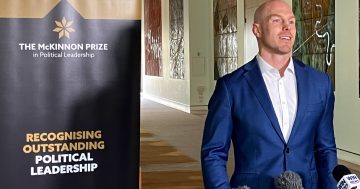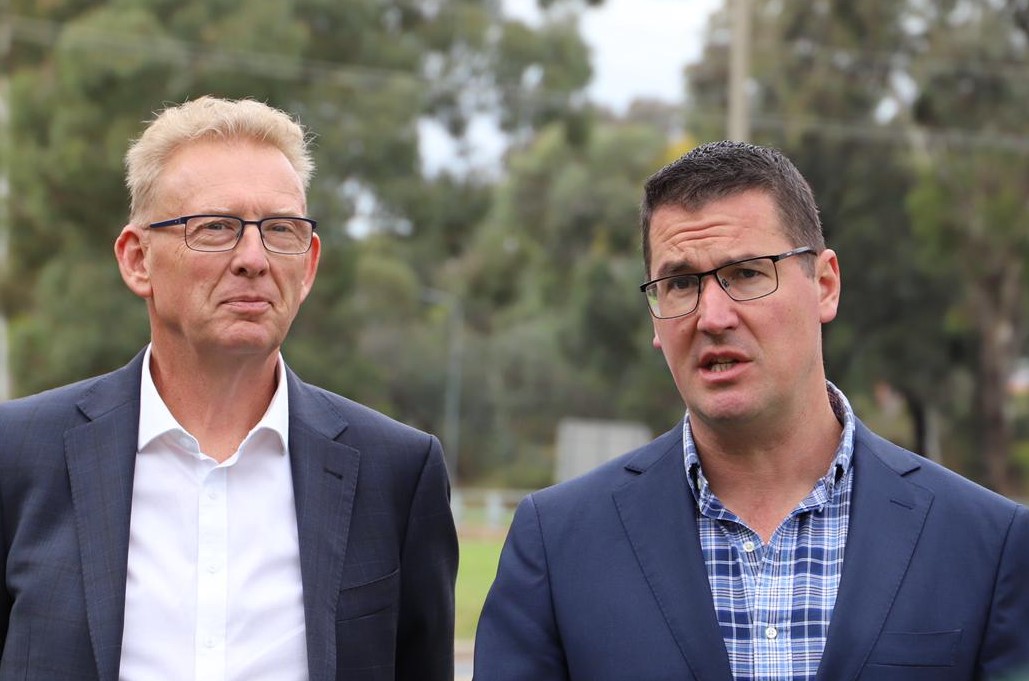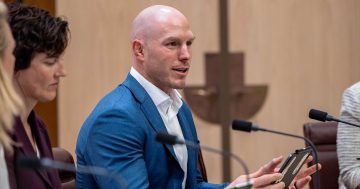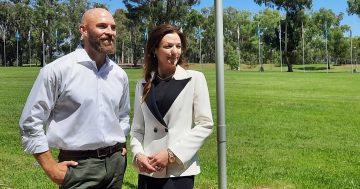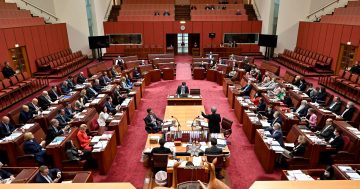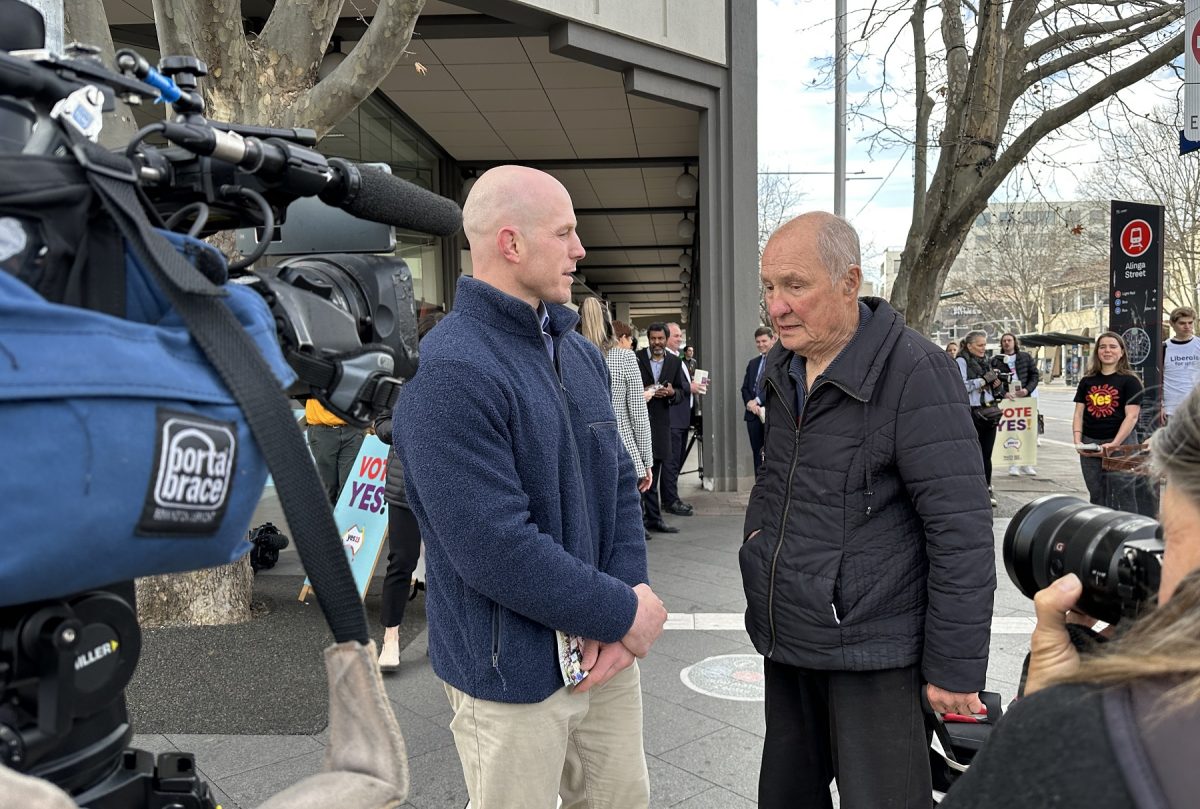
ACT Independent Senator David Pocock engages with commuters in Alinga Street. Photo: Region.
If you didn’t like his politics, it was easy to dismiss David Pocock’s tilt at the Senate. Until he won, of course.
What would a former rugby union player who’d made headlines for his environmental protests know about political representation? How would someone who’d chained himself to bulldozers win over soft Liberal voters from the inner south and Tuggeranong tradies?
Sure the bloke had buckets of charisma, but what could he really achieve beyond setting progressive hearts aflutter with the prospect of unseating everyone’s favourite demon, Zed Seselja?
We’re now two years into the Pocock experiment and it’s taken an interesting turn.
This week, he was awarded the McKinnon Prize for the best emerging political talent (by a panel that included Peta Credlin).
The panel said the prize recognised Senator Pocock’s impact on Australian politics in an impressively short period of time, articulating “a new kind of collaborative politics”.
The judges noted that he hadn’t used his balance of power in the Upper House solely to leverage extra benefits for his own jurisdiction, but rather sought to play an active role in solving bigger problems.
The balance of power is an accident of voting that may change at the next election – but broadly speaking, the senator has made his mark locally by demonstrating commitment to actual local issues.
ACT senators perform, in reality, more like extra MPs. They face the public every three years instead of every six, and the nature of this small jurisdiction means that voters are very familiar with them, unlike others in the states’ house who hover well above the fray.
Senator Pocock’s town halls are a case in point. He’s made them his trademark and they do very well for him, even when there’s really not much help he can offer on an issue.
Take the Green Shed meeting he held recently. As he admitted himself, the change in recycling tender from the Green Shed to Vinnies was strictly a state issue and there was little he could do but listen to angry people who didn’t like the change.
But listening is the key point: by gathering people together, allowing them to work through their feelings, by listening for action points and demonstrating engagement with local people on local issues, he does something that many other politicians honour only with lip service.
And since he’s an independent, he doesn’t need to toe the party line about anything. There’s always optimism, even if he lacks the practical ability to follow through. Just like families, sometime all people want is to be heard.
Is that all we need from our politicians, though? Should they be able to deliver more than a compassionate listening ear and some tweaking around the edges? Or is that enough for most people?
There are a series of tests ahead for Senator Pocock: the ACT election will include several independent candidates of various stripes and we may have an indication of whether the non-aligned vote will deepen its roots in this one-party town.
Then there’s the next federal election, due either at the end of this year or the beginning of 2025.
Early in the piece, it looked as if a strong Liberal challenger could win back the lost Liberal centrist votes. But as Senator Pocock solidifies his voting base, perhaps more on engagement than hard-core policy adherence, it looks more likely he’ll retain his seat.
Cannily, of course, he’s also keen to see the ACT’s representation in the Upper House increased to four. There are good arguments to proceed with this – on the basis of population and representation alone it makes solid democratic sense.
The change would likely mean the return of a Liberal senator, two Labor senators – and one fortunate independent.
This contest is one that’s worth watching as we consider whether Australia’s deeply embedded two-party politics is beginning to fray around the edges.














